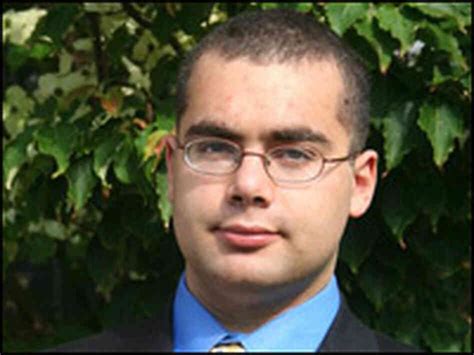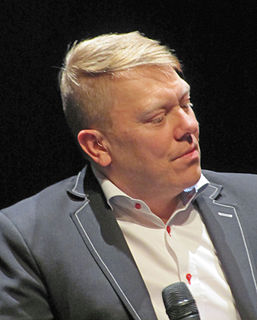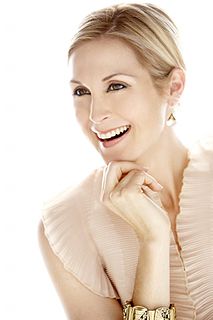A Quote by Ari Ne'eman
In America we've spent over a billion dollars on autism research. What have we got for that? We've not seen anything that's appreciably impacted the quality of life of autistic people, regardless of their place on the spectrum. Quite frankly, we've spent $1bn figuring out how to make mice autistic and we'll spend another $1bn figuring out how to make them not autistic. And that's not what the average person wakes up in the morning aspiring to. They think: am I going to be able to find a job, to communicate, to live independently, either on my own or with support? Those are the real priorities.
Quote Topics
Able
Am
America
Another
Anything
Aspiring
Autism
Autistic
Average
Average Person
Billion
Billion Dollars
Communicate
Dollars
Either
Figuring
Find
Frankly
Going
Got
How
Impacted
Independently
Job
Life
Live
Make
Mice
Morning
My Own
Out
Over
Own
People
Person
Place
Priorities
Quality
Quality Of Life
Quite
Quite Frankly
Real
Regardless
Research
Seen
Spectrum
Spend
Spent
Support
Them
Think
Those
Up
Wakes
Related Quotes
Research demonstrates that autistic traits are distributed into the non-autistic population; some people have more of them, some have fewer. History suggests that many individuals whom we would today diagnose as autistic - some severely so - contributed profoundly to our art, our math, our science, and our literature.
Animals are like autistic savants. In fact, I'd go so far as to say that animals might actually be autistic savants. Animals have special talents normal people don't, the same way autistic people have special talents normal people don't; and at least some animals have special forms of genius normal people don't, the same way some autistic savants have special forms of genius. I think most of the time animal genius probably happens for the same reason autistic genius does: a difference in the brain autistic people share with animals.
By looking at autistic kids, you can't tell when you're working with them who you're going to pull out, who is going to become verbal and who's not. And there seem to be certain kids who, as they learn more and more, they get less autistic acting, and they learn social skills enough so that they can turn out socially normal.
My brother is severely autistic, so when I was a kid I spent a lot of time as a teenager in camps and programs for autistic kids. When I went to McGill as an undergraduate, I figured I'd be a therapist working with these kids. The truth is, and I knew this even back then, I'm just not good at this. I'm too empathic to do this sort of thing.
I think figuring out how to do the best job you can, because frankly, no matter what gender you are - in television news - you're all measured by the same thing: which is the news you make or break, and the ratings you are able to deliver. But, how the audience hears you - or how the interviewer does - is also interesting.
If you have high-functioning autism, you may well have a lot of autistic traits but if you've got a particular lifestyle where it's possibly an advantage to be leading a solitary lifestyle and be quite obsessive, you're clearly able to function and maybe even make valuable contributions in your work, so arguably you don't need a diagnosis.
You take somebody - one person has definitely got autism, you got another person that maybe has some of those traits and maybe there's some anxiety, depression, some epilepsy or something in the family history. Put them together, you're more likely to have a severely autistic kid than if you don't have any neurological problems in the family history.






























